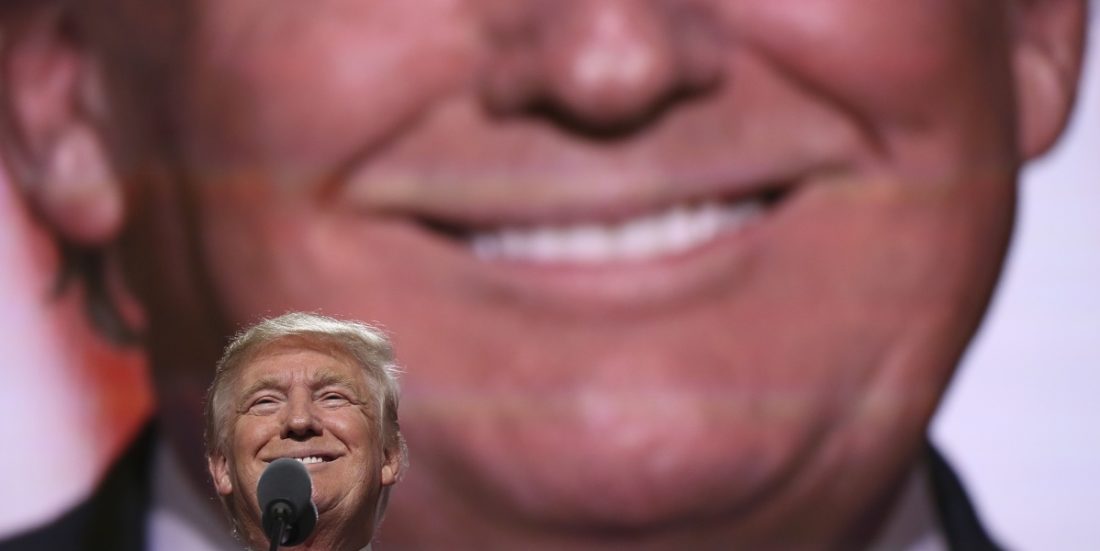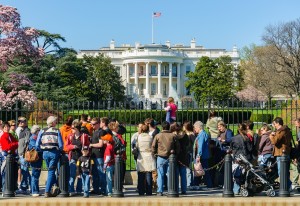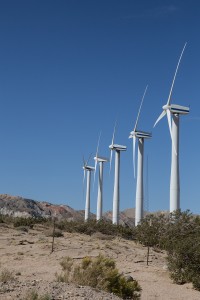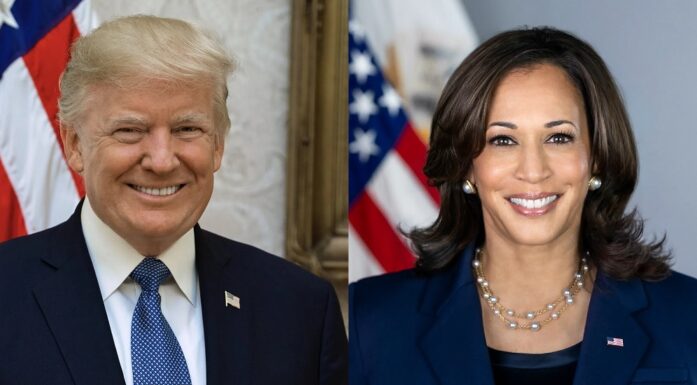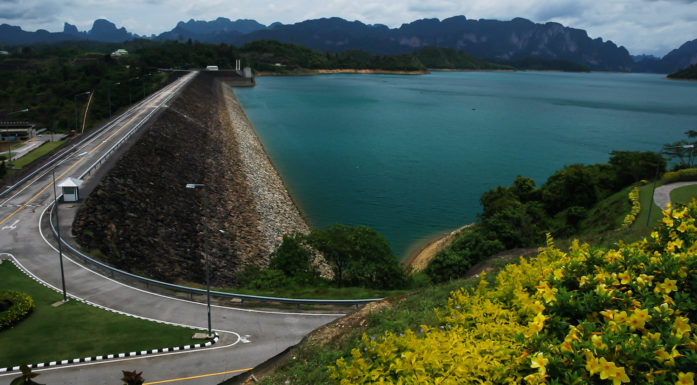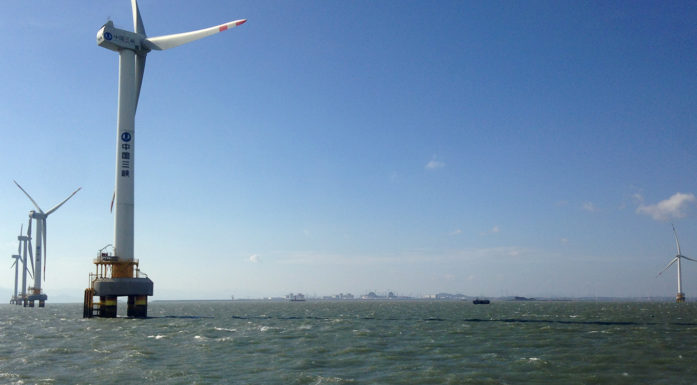What if a climate-change denier ends up as US president?
Donald Trump has said he will reject any climate agreements that do not benefit the United States, if he becomes president. A Norwegian professor says there is no reason to doubt that he is serious.
USA ELECTIONS: Donald Trump has been clear in his message: the United States is going to withdraw from the climate agreement in Paris and stop all payments to the UN’s efforts against global warming. He calls the research on anthropogenic climate change “bullshit” and would rather ramp up the American coal and oil industry.

Trump is serious. But a lot of climate policy in the United States takes place at the state level. Illustration: Thinkstock
Would the election of Trump as president be a disaster for the transition to greener technologies?
“He means business. But a lot of climate policy in the United States takes place at the state level. All states have their own arrangements for bringing in more renewable energy,” says Espen Moe, a political science professor at NTNU.
Obama used bureaucracy
With Barack Obama, the US has taken a leading role in international climate negotiations, but Obama has not had an easy job as climate advocate at home. Republicans have the majority in both the House and Senate, and Congress has repeatedly rejected Obama’s attempts at getting his climate and energy policies through.
Central to these policies has been the Clean Power Plan — regulations that in practice cut back the country’s significant and powerful coal industry. Obama implemented the regulations by bypassing Congress and going through the Environmental Protection Agency (EPA) instead, giving it the authority to make plans to reduce emissions in all states.
The EPA has the authority to regulate pollution that threatens human health and the environment. In 2009, shortly after Obama was elected, and after a change of leadership in the EPA, CO2 was included among the gases that the Agency regulates.
Obama has also used presidential “executive orders” to effect important environmental actions, as well as the Department of Defense, which is further removed from political control. The Department of Defense has thus been one of the major drivers of different renewable solutions in the US in recent years.
- You might also like: Trump could be a good president
Vulnerable climate measures
Because much of Obama’s climate and energy policy bypasses Congress, it is not enshrined in law, but is rather a result of bureaucratic regulations. This is a form of technocratic expert control, according to Moe. Subsequent presidents are not bound by executive orders, so climate policy could be reversed by Trump, if he ends up as the next US president.
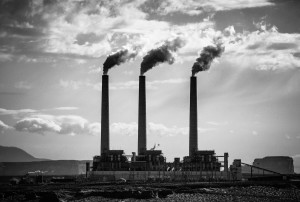
Coal power plants still generate a high proportion of the energy the United States uses. Pictured is the Navajo Generating Station in Arizona. Photo: Thinkstock
“Had Congress passed the policy into law,” says Moe, in order to change it, “the next president would need to have the law repealed or make a new law. Chances are good that the House or the Senate would block such an attempt. Obama has used bureaucratic means to regulate large and important areas of society rather than the legislative route of adopting a climate law. This frees him from negotiating with Republicans who don’t believe in climate change.”
The Senate can use the delaying tactic of filibustering to block a bill. In the past and sometimes even today, that means that a senator who opposes a bill can choose to talk about anything to prevent it from coming to the floor for a vote.
“What has become far more common is a kind of technical filibuster, which means that a bill requires a 60% vote to be adopted. As toxic as the political scene has become in recent decades, 60-40 is now becoming the rule rather than the exception. And since it’s extremely rare that any party has 60-40-majority, it means that most legislation can be blocked,” says Moe, who believes a lack of institutionalization is a major problem in American climate policy.
Moe says, “Obama is a president who knows that climate change is one of our biggest societal challenges, and that he therefore has to do something. Obama has been virtually forced to use policy channels other than political ones. But every time Obama bypasses Congress and takes a detour via bureaucratic channels, it reduces the legitimacy of the changes, undermines democracy and makes policies more vulnerable to political fluctuations. Major decisions should be broadly based.”
Vulnerable to lobbying
American climate policy’s lack of institutionalization, and the large fluctuations from president to president that this entails, have made the United States more vulnerable to lobbying by powerful interest groups as compared with other countries.
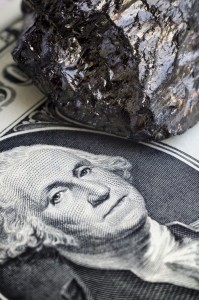
Coal power plants still generate a high proportion of the energy the United States uses. Pictured is the Navajo Generating Station in Arizona. Photo: Thinkstock
The US is the world’s second largest coal producer behind China, and 37 per cent of American electrical consumption is coal based. Before Obama, coal represented 50 per cent of US energy consumption, but the industry is still powerful, operating a bit like the gun lobby NRA through its sponsorship of political parties and individual representatives in the election campaign. And it is the Republicans who are the most heavily sponsored and thus benefit the most from the coal lobbyists.
“George W. Bush, who was an outspoken friend of the coal industry, won the election in 2000, which resulted in the coal industry getting “its” people into public offices and onto official bodies. This led, in turn, to the EPA not regulating CO2. It was only in 2009, after Obama was elected and brought a change of leadership to the EPA, that CO2 was again subject to the EPA’s attention,” says Moe, adding that Trump has announced that if he becomes president, he will replace the current EPA administrator, or dissolve the entire Agency altogether.
With Bush as president, Americans had a president who supported the coal industry, but otherwise the coal lobby focuses its efforts on the Senate. Each state has two senators, who know that they must represent their state’s interests for them to be re-elected, and who are thus very susceptible to lobbying from large industries in their own state.
Moe says that twelve to 20 of the states are considered “coal states,” and that means up to 40 senators want to preserve the coal industry. Moreover, he says, the Republicans don’t believe in global warming, and therefore they aren’t interested in cutting coal, which ensures jobs and energy security.
- You might also like: Democracy doesn’t happen automatically
The market decides
Any shift in the coal industry in the United States has therefore been difficult. What has happened instead is a technological breakthrough for fracking, a controversial method of extracting shale oil and gas. As a result of the increased gas supply, the gas price dropped by 80 per cent at its peak, which primarily impacted the coal industry.
Moe points out that Trump has been clear that he will create more jobs and improve US energy security through the coal industry.
“There’s no guarantee that this is possible,” says Moe. “Trump also wants to stimulate growth in shale oil and gas, which is the main competition for the coal industry and the reason coal has lost ground in recent years — not growth in renewable energy or expanded EPA regulations. But what we constantly hear is Trump’s enthusiasm for fossil fuels, almost no matter which ones,” he adds.
Moe also points out that energy policy in the US is otherwise characterized by being directed at the supply side. This emphasis creates no demand for renewable solutions — such as many European countries have implemented through feed-in tariffs (FITs), green certificates or other supports or subsidies that increase renewable energy production — except at the state level.
In the US, a renewable energy production tax credit exists at the federal level, but this requires Congress to renew it every one or two years, which has created political tugs of war and tremendous unpredictability for the American wind industry — again an example of the lack of institutionalization of climate and energy policy.
“The United States wants to be the leader in developing breakthrough technology, and a lot of work is being done to develop renewable solutions. Once the solutions are there, the idea is that the market will take care of the rest. The USA carries out a lot of research on alternative energy, but few tools exist to promote the phasing in of the new technology. In fact, this thinking is more than a little bit similar to what happens in Norway,” says Moe.
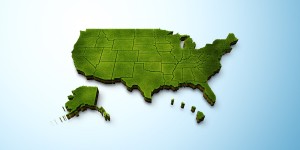
“The United States wants to be the leader in developing breakthrough technology, and a lot of work is being done to develop renewable solutions,” Moe says.
Norway has not introduced any feed-in tariffs to support the phasing in of renewable power, unlike most other countries. Instead, whoever can deliver the cheapest energy wins the bid.
“And those who deliver the most cheaply are hydropower and Swedish wind. In addition, the licencing system is fraught with huge bottlenecks. It can take ten years before a Norwegian wind turbine actually delivers electricity to the grid,” says Moe. So, just like in the United States, Norway “prefers to subsidize research, in the hope that sooner or later it will produce technologies that are so advanced that they can outcompete existing energy systems without any subsidies,” he adds.
Trump may flip-flop
Climate policy divides Americans along party lines to a striking degree. Republicans are far less concerned about climate change than Democrats. Can climate policy still be a theme in the election campaign this fall?
“For Trump, energy, the economy and foreign policy all fall into the same category. He goes for solutions that are cheaper and that are most likely to guarantee America’s energy security. This means a continued focus on energy from coal and fracking. In the election campaign he’ll no doubt ridicule climate change — but if a president Trump sees that renewable energy is a major growth industry for the United States, with considerable export potential, or if renewables can actually compete on price and generate cheaper electricity than other energy sources, he’ll reconsider. The USA would then have a climate policy based on economic progress, and controlled by the market. I don’t believe that Trump is an unwavering opponent of renewable energy,” says Moe.
He believes American politics are now so toxic that it is impossible for any president to undertake major reforms, climate reforms included.
“If Hillary Clinton becomes president, we know that the Democrats are in the minority in the House and the Senate. Hillary shares Obama’s worldview when it comes to climate and environmental issues, and she represents a system that is going to continue the reforms that Obama has already implemented. I’m still not convinced that she is as clear as Obama. My gut feeling is that she’ll be more inclined to compromise on the issues,” says Moe.
Americans are less concerned with climate issues than Europeans, so it isn’t a given that climate policy would be a winning theme for Clinton in the election campaign.
“She should raise the climate issue to win over the Bernie Sanders voters, and I think that’s the main reason she’ll do it. But it’s not an issue that will necessarily give her a lot of Republican votes,” says Moe.
“I don’t believe that Trump is an unwavering opponent of renewable energy.” Espen Moe, professor at NTNU.
